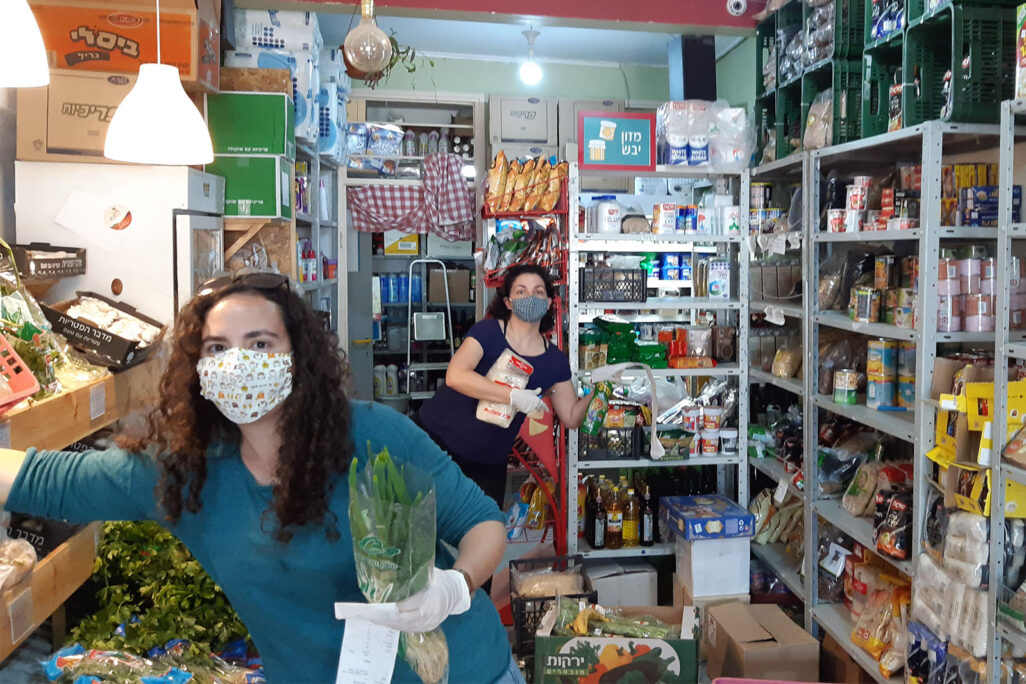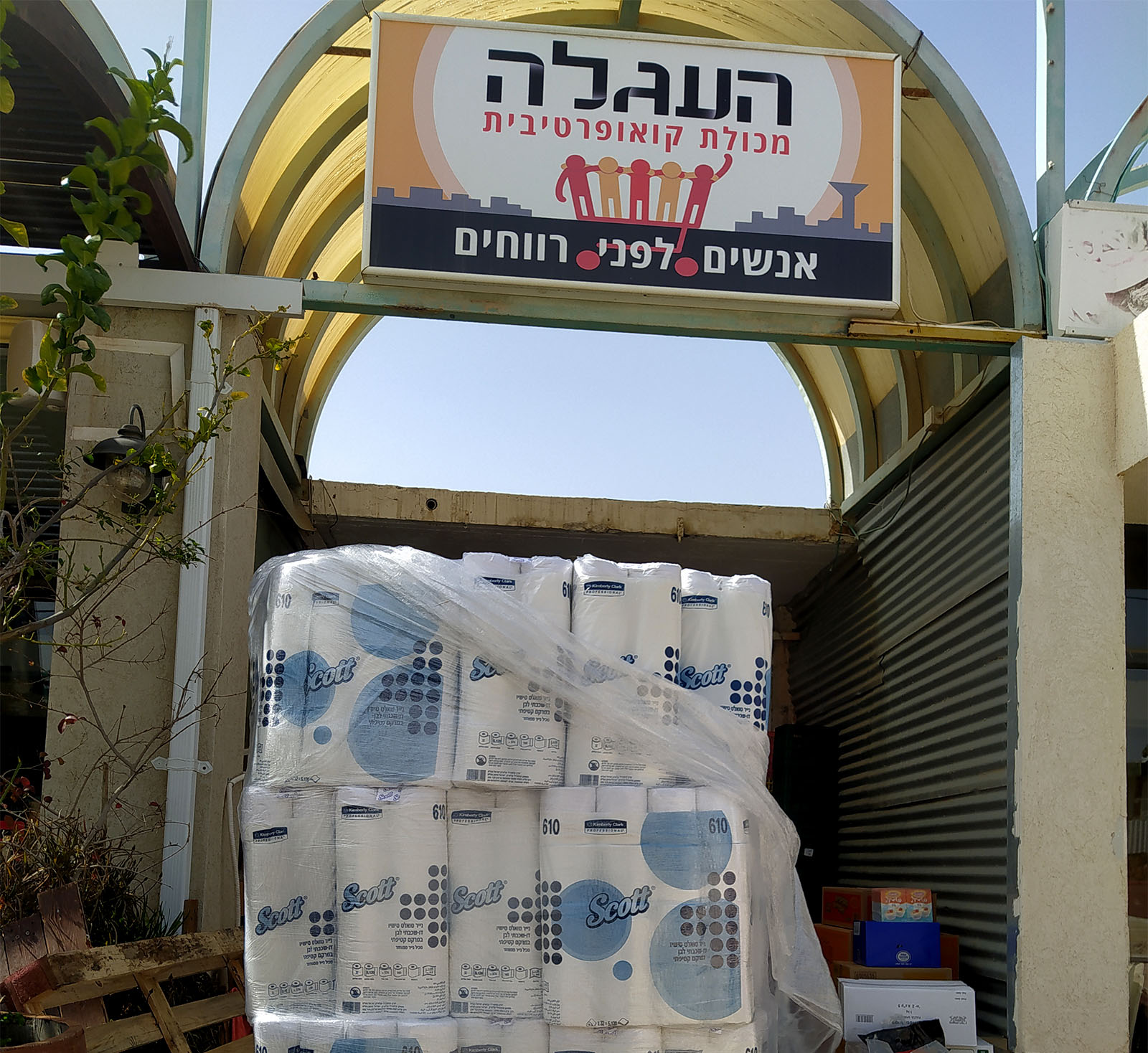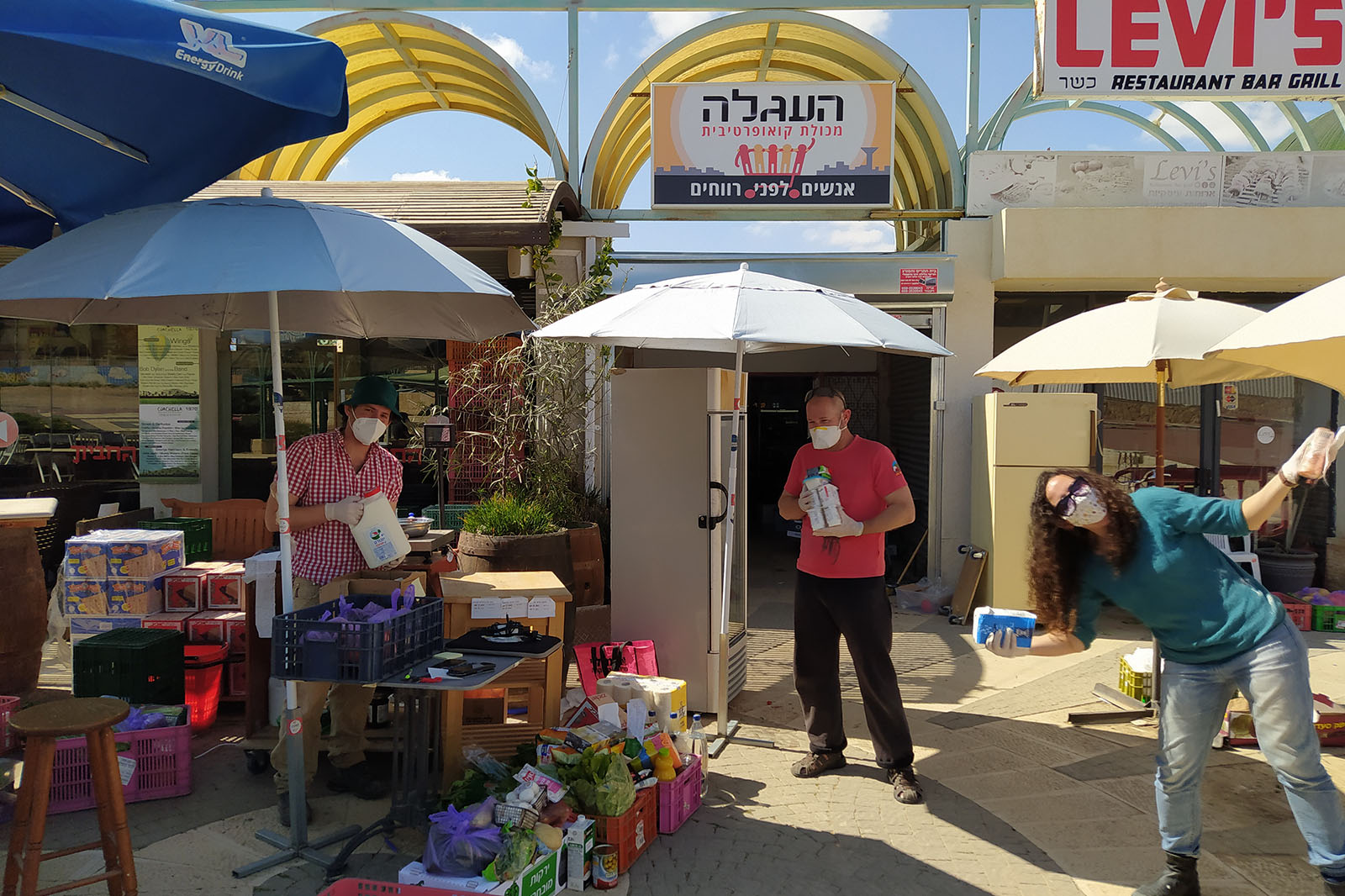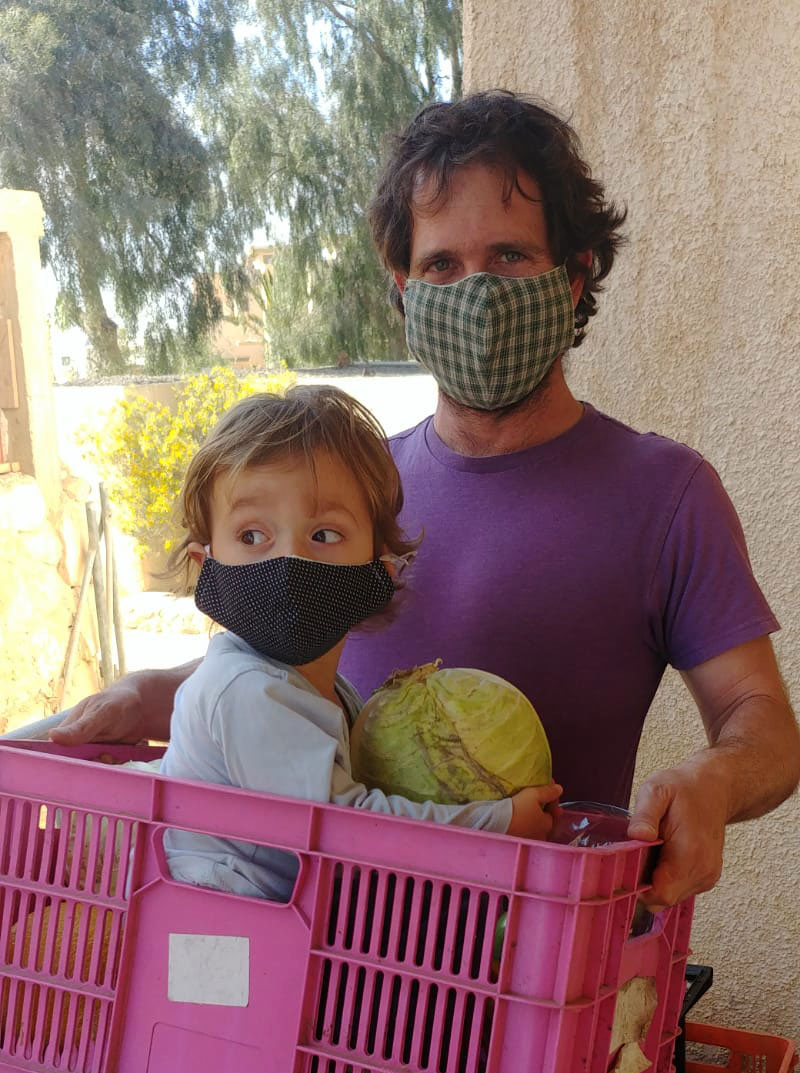
Necessary background: The Cart cooperative was established in 2010 by 13 families in Mitzpe Ramon as a cheap and communal alternative to the local branch of Shufersal, Israel’s largest supermarket chain, whose high prices used to be the only option in town. Today, 120 households are members of the cooperative. Each member operates the store for two hours a month and receives a 15 percent discount on their purchases. Prices at the Cart are cheaper by almost 20 percent relative to the alternatives in town.
The first weekend when the government told us to stay home, I watched on TV as people scoured the big supermarket chains to buy food supplies and toilet paper. At this point, our warehouse had already quadrupled our typical store of supplies. How did we do it? The difference lies in how our business works — the Cart belongs to the employees and the members who shop at our store. It means that we make decisions as a cooperative. After all, who knows the needs of the customers best, but the customers themselves?

At the beginning of the crisis, we realized that we weren’t immune to the pressure felt all over the country. So, we prepared ourselves differently. We ordered more goods. We updated our members in real-time, telling them that we had received extra shipments of goods. In our WhatsApp group, we notified our customers that there were enough groceries and that they didn’t need to worry. We did not restrict the amount of food customers bought, but we emphasized that there was no need to stockpile. Most of us have no extra money to spend. It worked — our stores proved to be enough, and we were able to stay (relatively) calm.
Trust
Last week we all read in the news that prices of cleaning supplies have soared in the large retail chains. Passover sales are over, and online shopping is too expensive for many. We’re in the opposite situation — during this period, no one asked if we raised prices because the whole community knows that our prices are the lowest in the country. It is clear to anyone who knows us that we will not take advantage of this crisis. We are a business that is built on years of collaborative work and trust between people of diverse backgrounds. A time of crisis is a time to strengthen that trust, not to let people exploit one another in the name of survival.
Not just a cooperative – a community
At the start of the crisis, we anticipated the collapse of the supply chain to all the retail stores. We knew that since Mitzpe Ramon is a peripheral town, it would probably be the first place to suffer. We realized that we needed to re-tool our supply chain so it could serve the entire community, and we prepared for the demand. We started with delivering groceries to people in quarantine and elderly people, and expanded to the entire community. We went from receiving two orders a day a week and a half ago, to over 60 orders a day. By the start of the Passover holiday, our co-operative will be the source of food for more than a quarter of the community. For a cooperative with 120 households, this is no small achievement. We are always happy to have members take initiative in the co-op, but we’ve been especially overwhelmed by the enormous amounts of time and energy that our members have invested during this emergency.

We deliver groceries to anyone who can't leave their home because of isolation, people who are immunocompromised, or who can’t leave the home for any other reason — no questions asked. Elderly members of the community receive a 15 percent membership discount. We sell masks purchased by the local council to the entire community at cost price. We’ve created an order form and arranged telephone translators in Russian and English to help those for whom Hebrew is a second language. In the coming days, we’ll have even more work to do as we adjust to growing demand.
People over profit
From the very beginning, it was clear that we were experiencing an epidemic. What we didn’t know was how to best protect the members of our community, and how to manage the store in the light of the new risks. How can we protect those who come in to work at the store? How can we ensure the store doesn't become an infectious "hotspot"? We had to balance the need to maintain routine and not create unnecessary panic with our responsibility over the entire community, so we created new procedures for the store. We provided gloves and hand-sanitizing gel, and capped the number of people in the store before these practices were required by the Ministry of Health. We talked to all the members of the co-op and explained what each member needed to do to maximize the safety of everyone. All this happened while the big local supermarket did not limit the number of people in their store or take any other protective measures.
Our goal is for the Cart to be not just a safe place, but a meaningful one. Taking responsibility for others and mobilizing for mutual aid helps all of us to deal with the anxiety and boredom of this period. We were even able to raise wages after the increase in sales. At a time when many people are out of work, I’m glad we have the ability to create jobs in our community.

Creating solutions in a time of crisis
Two days ago, we revolutionized our model again. All week I have been troubled by concerns about how to avoid mass infection in the shop, since there have been confirmed cases of COVID-19 in Mitzpe Ramon. Do we close the shop? After all, people still need to buy food.
But in the Cart, no one is alone. Our leadership committee met via Zoom and decided to make a radical change — we would close the store to walk-in shoppers and continue taking orders via delivery. This strategy, which allows us to prevent mass infection, has since been adopted by by other grocery stores and shops. Two days ago, we held a Zoom meeting with all of the members of the co-op, where we agreed that shifting all our business to orders and deliveries is the best way to keep ourselves and the community safe. Since then, we’ve closed the entrance to the store, we sanitize between shifts, and we've moved some of the work outdoors to try to protect ourselves as much as possible.
Recently, we met with a business consultant who asked us how we’ve managed to stay in business for a decade. The answer lies in the fact that, unlike the retail chains, we rely on voluntary public participation. We work not for profit, but to best meet the needs of buyers and employees – ourselves. We are a business that makes decisions democratically, and this method turns out to be a long-term risk mitigator.
The future
I feel lucky to belong to a fantastic community. I believe that many people in town will see how unique and important our cooperative is, and will decide to join. I hope this this period of time will be behind us as quickly as possible. At the same time, we’re preparing for the long haul, and we know the co-op can see our community through this difficult period.
___________________________________________________________
Shalom Danoff is the manager of the Cart cooperative and a member of the educational kibbutz of the Dror Israel movement in Mitzpe Ramon.






